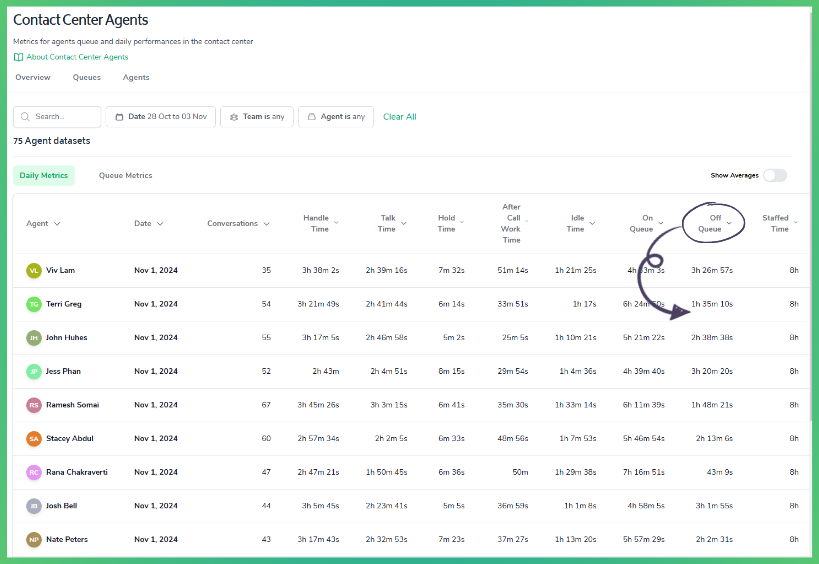
'Off Queue' time, also known as ("auxiliary time" or "aux time") in a contact center context, encompasses periods when agents are not actively handling customer interactionsski but are engaged in other work-related activities. This can include tasks such as:
Training: Agents may spend time undergoing training sessions to enhance their skills, learn about new products or services, or familiarize themselves with updated policies and procedures.
Coaching and feedback: Supervisors or team leaders may provide one-on-one coaching sessions with agents to provide feedback on performance, address areas for improvement, and discuss goals and objectives.
Team meetings: Agents may participate in team meetings or huddles to discuss performance metrics, share best practices, receive updates from management, or collaborate on strategies to improve customer service.
Administrative tasks: Agents may need to complete administrative tasks such as scheduling, submitting time-off requests, or filling out performance evaluations.
Breaks and personal time: Agents are entitled to scheduled breaks and personal time for rest and relaxation between customer interactions.
Off Queue time is essential for contact center operations as it allows agents to engage in activities that contribute to their ongoing development, well-being, and overall performance.
While auxiliary time is necessary, contact center managers should strive to balance it with active customer interaction time to ensure optimal agent productivity and service levels. Effective scheduling and time management practices can help maximize the value of auxiliary time while maintaining high levels of customer satisfaction.